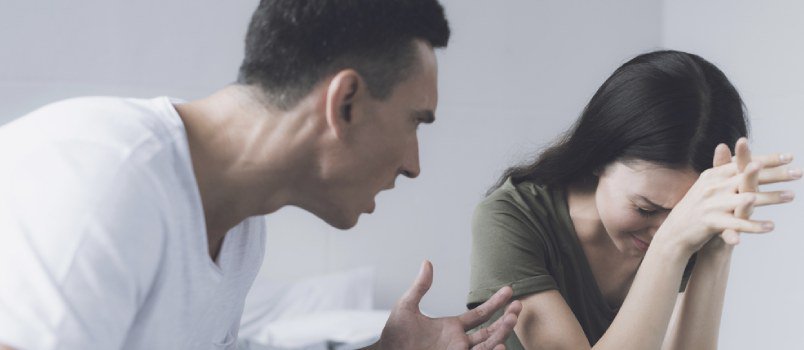How to Heal from Emotional Abuse

Key Takeaways
Marriage.com AI Quick Summary
An emotionally abusive relationship is really an ongoing process where one person systematically diminishes the will and interests of another person to eventually destroy that person’s emotional well-being.
The abuse may be mental, physical, psychological, or verbal, and often a combination of these.
As the relationships are usually entered into through strong emotional attraction (abuse can apply parent to child, child to parent, between siblings or even between friends), it is a wonder why the abuser is compelled to act in such a destructive and fruitless way.
Any abuser in a relationship is actually turning the gun on themselves — so to speak — by ruining the spirit of their significant other and causing undetermined damage to themselves.
Abuse can certainly be seen as a component of self-destructive behavior.
The victims experience a multitude of self-destructive symptoms, develop suicidal tendencies with time, and gradually drown into the vast ocean of depression.
Healing from emotional abuse or recovering from emotional abuse for such victims, therefore, becomes an extremely grueling and painful process.
According to Jennifer Jacobsen Schulz, LCSW:
In many cases, the victim may feel as if the abuse isn’t real, or they’re simply imagining things because there is no physical abuse.
Emotional abuse can very much be damaging, even if there is no physical abuse, and there is no shame in seeking help.
So, how to recover from emotional abuse by a spouse or a partner? And is recovery from emotional abuse truly possible?
Related Reading: 8 Ways to Stop Emotional Abuse in Marriage
Also watch: How to distance yourself from an emotional abuser
Emotional abuse is like a silent killer that attacks feeling and murders hope. Here are some
The person leveraging emotions in an abusive way may not even feel that they are doing anything wrong.
The abuse in the case of emotion is not necessarily limited to the dominant figure in a relationship — male or female –and it may sometimes be the ‘weaker’ partner who leverages abuse to achieve a sense of strength and control.
For recovering from an emotionally abusive relationship, both the perpetrator and the abused need to seek help. Solving half of the issues in an abusive relationship is never really a solution unless the relationship is dissolved.
Even then, only the abused will find solace from disruptive behaviors.
Help for the abused
Many people experiencing domestic abuse feel like they are alone, and people won’t understand or believe what they are going through.
However, you’re not alone.
There are professionals available who will understand you, who believe you, and who want to help you to recover from emotional abuse.
Professionals are available to simply listen and support you, should you make an effort to seek out friendly guidance or help take action for healing emotional abuse, or should you decide to plan on leaving an abusive relationship.
Their expertise will aid the victims in healing from emotional and verbal abuse and return to normalcy gradually.
Anyone who needs to speak in confidence regarding domestic abuse or is looking for ways on how to heal from emotional abuse should start with research into local services.
Using computers and the internet at a local library will keep browsing data off personal and home computers that might inadvertently appear and anger the abuser.
If home equipment is used in searching for help, be sure to wipe all data in from browsing sessions and keep phone numbers stored safely.
Abusers may have a habit of secretly checking up on your behavior that would not be unusual for their mindset.
Simple searches for phrases such as “help with abuse [name of town or city]” will usually yield the information you need.
Other professionals, such as the police, religious leaders (pastor or priest), public shelters, family courts, psychiatric care facilities, and health professionals may be able to offer advice on how to recover from abuse and put you in touch with domestic abuse support services and those specializing in delivering services for the abused.
While the immediate family is not always the best resource to deal with domestic abuse, combining the help of family members and trusted friends might be an option for taking those initial steps with confidence.
When recovering from emotional abuse in marriage above all, your goal is to become a survivor of abuse and not the most tragic of victims.
Take care of your planning and guard your research until you are ready to put a plan into action. Try not to act out of fear.
Related Reading: Signs of a Mentally Abusive Relationship
Help for the abuser
Recognizing that you have been abusive toward a partner is something that most often will come out of drastic consequences or confrontations.
It is a regrettable reality that the realization only becomes evident when the situation has gone too far. Even so, an abusive habit or agenda is something that is difficult, but not impossible to change.
Taking responsibility for one’s own actions is a necessary component of adjusting and eliminating negative behaviors.
By realizing the actions are your own — and not something cultivated by external stimulus — or even your partner or target of abuse — puts the onus of responsibility squarely on the shoulders of the abuser.
This admission can be both frightening and difficult to handle. However, the abuser does not have to go at it alone.
Just as professional help is available for emotional abuse recovery, there are resources for the abuser to consult in attempts to modify their behavior and reshape their lives and their relationships should the latter still be a possibility.
Jenni Schulz highlights that:
There are resources available to help abusers change their behavior, and accountability is the first step toward change.
Just as with victims, searching for local resources on the internet may be a good first step, and seeking the help of anger management, abuse counselors, or other organizations and individual therapy can help educate the abuser to come to terms and manage behaviors.
Confiding in one’s spouse / significant other or the subject of the abuse, even if sincere before taking other steps, will likely be seen as another manipulative gesture.
In all cases, both the abused and abuser should seek some form of help on how to heal from abuse and not be deceived into thinking that wiping away the immediate threat will rectify behaviors or the emotional damage caused by abuse.
Those peripheral to abusive situations like children may benefit from counseling as well. They are equally exploited, if not directly, and need help with healing from emotionally abusive circumstances.
Healing after emotional abuse or recovering from being an abuser can be a tough path to follow, but with the right guidance and help, you can definitely find solace in your relationship and in your life.
Related Reading: 6 Strategies to Deal With Emotional Abuse in a Relationship
 Tips
Tips
Write your tip or submit a video tip
All tips are reviewed before the publishing.
Share this article on
Want to have a happier, healthier marriage?
If you feel disconnected or frustrated about the state of your marriage but want to avoid separation and/or divorce, the marriage.com course meant for married couples is an excellent resource to help you overcome the most challenging aspects of being married.
Recent Articles
Related Quizzes
Unlock Daily 30-Sec Tips for a Happier, Healthier Relationship
👉 Subscribe FREE on YouTube We'd love your feedback!
We'd love your feedback!
 Expert Q&A
Expert Q&A
Ask your question related to this topic & get the support you deserve from experts.





















 Thanks for your feedback!
Thanks for your feedback!